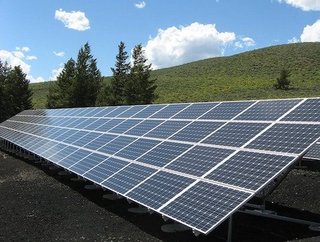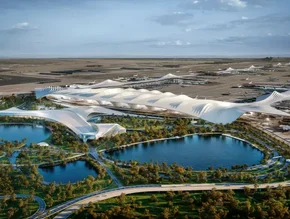Ferrovial to build a 200MW solar photovoltaic plant in Spain

Ferrovial, through the Energy Solutions area of its Construction division, has been awarded a solar photovoltaic plant with a capacity of 200 megawatts peak in Badajoz (Spain) for more than 100 million euros. This new contract underscores the company’s commitment to the decarbonization of the economy, as set out in its Horizon 24 Plan, it says.
Ferrovial will execute this project, which is called Renopool, on a turnkey basis. The scope of the work includes the engineering, construction, and commissioning of the plant, as well as its operation and maintenance during the first two years. The execution period for the works is 14 months, during which time some 500 direct and indirect jobs will be generated.
The future plant will have 350,000 bifacial photovoltaic modules and will have an estimated annual production of 400 GWh, enough energy to supply 118,100 homes each year.
Progress with decarbonising the economy
As part of its solid commitment to sustainability, and in line with its Horizon 24 plan, which is committed to creating complementary businesses to its activity, Ferrovial has created the Energy Solutions area within its Construction division. This area will play an important role in the company’s ESG strategy, focusing on the fight against climate change and decarbonization.
It is estimated that Renopool will reduce CO2 emissions by 65,920 metric tons per year, once again highlighting the company’s commitment to renewable energy and the environment.
This new contract is in addition to other company projects in the renewable energy generation sector, such as the turnkey construction (full EPC) of the 50 MW El Berrocal solar photovoltaic plant in Seville (Spain), the construction of two solar photovoltaic energy projects in Andalusia with an investment of 75 million euros, and the construction of the Cabo Leones wind farm (Chile).
Energy infrastructure development
Ferrovial is also working to boost offshore wind energy development, which will help the country achieve its energy targets. Spain has established a roadmap to become a leading floating wind market in Europe, setting a target of 3 gigawatts (GW) capacity by 2030. In fact, the Maritime Space Management Plan (POEM) would have a potential capacity of more than 20 GW. Because of the considerable depth of Spanish waters, the Government has given preference to floating wind technology for producing this type of energy.
To date, Ferrovial has expressed interest in five wind farms in the country with an installed capacity of 2,250 MW. Specifically, the company plans to build these infrastructures off the coasts of Lugo, Pontevedra, Gerona, Malaga and Gran Canaria, located between 11 and 30 kilometers from the shore.
- China State Construction: The Globe’s Largest ContractorProject Management
- Top 10 sustainable construction startupsConstruction Projects
- East Penn powers an industrial closed loop circular-economyTechnology & AI
- The state of waste management in the construction industryConstruction Projects






